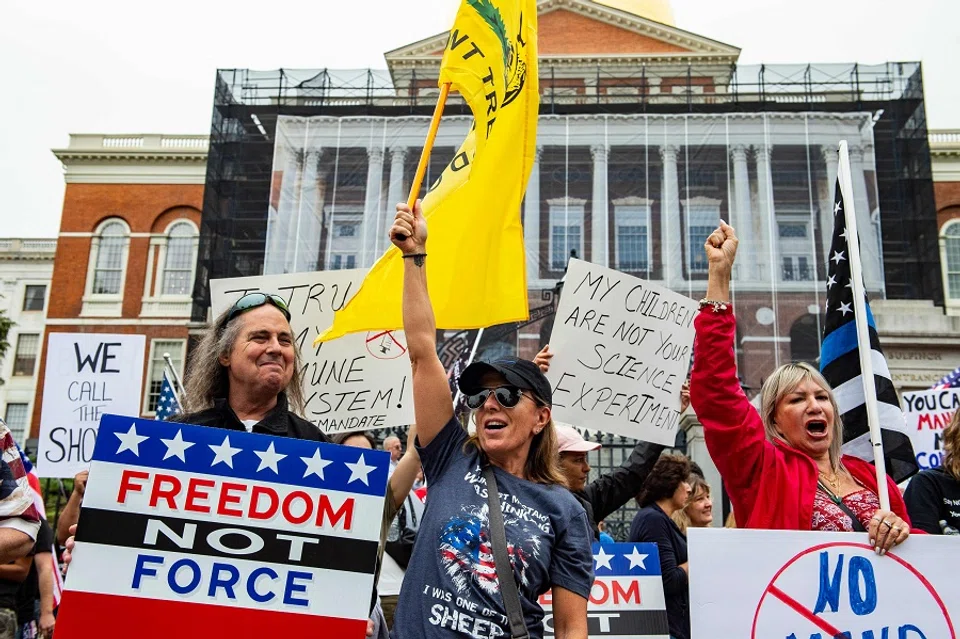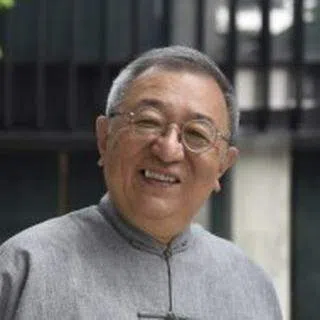Pandemic diary (Chapter 5): The huge difference between Hong Kong and American societies
Like many of us experiencing pandemic days, cultural historian Cheng Pei-kai spent the last two years living quietly. With all gatherings cancelled, he only had the incessant news on the coronavirus for company. On one occasion, an interview on American television was particularly jarring: someone was lambasting social distancing rules and venting her frustrations at the disruptions to everyday life. Where do people have the gall to blame everyone but themselves? Did the pomposity of their country's leader rub off on them? Cheng felt the huge difference between American and Hong Kong societies.

16 July 2020
Hong Kong's Covid-19 situation took a turn for the worse recently. There was quite a large-scale community outbreak reported on top of several cases with unknown transmission routes. People are getting more anxious than before, not knowing if a fifth column concealing the coronavirus disease is lurking around them, secretly releasing a fatal gas in their midst. As such, my gatherings are also being cancelled one after the other.
China is a country that values manners and etiquette. To save face for both the host and the guest, there is a proper way to cancel gatherings as well. As the host, cancelling an invitation due to sudden changes to the Covid situation and slamming the door in his guest's face is not giving face to the guest. Putting ourselves in the shoes of the guest, when someone extends an invitation to us, out of courtesy to the host, we accept the invitation. But now that the host is cancelling the event himself, albeit because of the Covid-19 situation, wouldn't the guests feel a little cheated?

On the other hand, the guests should also put themselves in the host's shoes and judge the current situation for themselves. Since the situation is bad, the coronavirus disease is persistent and the invisible coronavirus killer is roaming the land, if the host still insists on hosting the gathering and refuses to cancel it to save face for both parties, then the guest should gently decline to attend by saying that gatherings should respect science and that life is precious. Thus, both the host and the guest would be able to save face. This reflects that Hong Kongers' respect the instrumental rationality of medical experts and maintain the traditional etiquette of saving face.
What happened to good manners?
Now that all my gatherings are cancelled, I stay home watching American news. One day, after tuning in to NBC, I turned the channel to CNN and saw a barbaric scene completely devoid of etiquette and manners taking place in Texas. A mask-clad female BBC reporter was interviewing local residents when a white middle-aged woman who did not wear a mask suddenly lashed out, "All you people wearing masks! You are threatening our wonderful life, intimidating us and letting us live in fear!"
Although the woman was not tall, she had a sturdy build and a loud voice and her face was flushed. She pointed angrily at the reporter, loudly rebuking her. First, she criticised all medical experts. She called them big fat liars who wanted to destroy the economy by intentionally shutting bars, restaurants and shopping malls, leaving people with nowhere to wash and perm their hair.
Then, she rebuked the media, saying, "You reporters! You spread rumours every day and deprive us of our freedom by forcing us to wear masks and overturning the human rights and freedom granted us by the constitution! Darn it, go to hell! I'm American. I have my freedom and my rights. I will never wear a mask!" The woman blabbered on for around four, five minutes, never once stopping to catch a breath, as if she's been through some special vocal training. How impressive!
The reporter didn't speak, allowing her to exercise the human rights and freedom granted her by the constitution. The videographer did not stop rolling the camera either. When the woman was about done and saw that the reporter did not give a response, she gestured with her flabby arms and unleashed her pent-up anger, spewing out a few more nasty remarks. She basically said, "You watch out. We'll see who gets the last laugh! All these ridiculous rumours you're spreading about the virus have shuttered restaurants and bars and we have no place to eat at. I'll sue you and your radio station and make you pay for my losses and emotional distress. I'll make you bankrupt! And then you'll see what's the American spirit." Before she left, she said, "President Trump already said the virus is a 'hoax'."

I always knew that Texans were arrogant. Legend has it that even the flies there are bigger than cows and one serving of fried chicken weighs at least ten pounds - it's all in good fun. But the aggressiveness of this Texan woman was different - her words were forceful and loaded, shattering the confidence of the coronavirus all in one punch. Her brashness fully amplified the spirit of rambunctious Texas and completely defeated the cautious and wary British reporter.
But it turned out that her train of arguments, unflappable confidence and firm courage came from Trump's ignorance and shamelessness. Trump thinks that science must obey politics, and politics must obey him and make him president again. He thinks that he is the only one who decides whether science is science, whether the coronavirus is the coronavirus, whether people get infected, and whether people die from the virus. It's as if he believes "I am America, I am the world". Even the coronavirus must listen to him. (Louis XIV was also known to have said: "I am the state.")

The US has a population of over 300 million people. Even if 1% of the population dies (read: that's over three million people), 99% of the population remains! What's there to be afraid of? The US is still the top superpower and is still number one. The Texan woman probably didn't do her math, but she perhaps thinks that she wouldn't be part of the 1% that the coronavirus takes away either.
Luckily everyone in Hong Kong wears a mask. We'll just mind our own business and not interfere with others.
Related: Cultural historian Cheng Pei-kai: The best antidote for surviving the pandemic | Cultural historian Cheng Pei-kai: The power of the individual during a pandemic | Cultural historian Cheng Pei-kai: Life and death are predestined, and wealth and poverty are heaven's arrangement | Pandemic diary (Chapter 4): The president who spread a political virus





